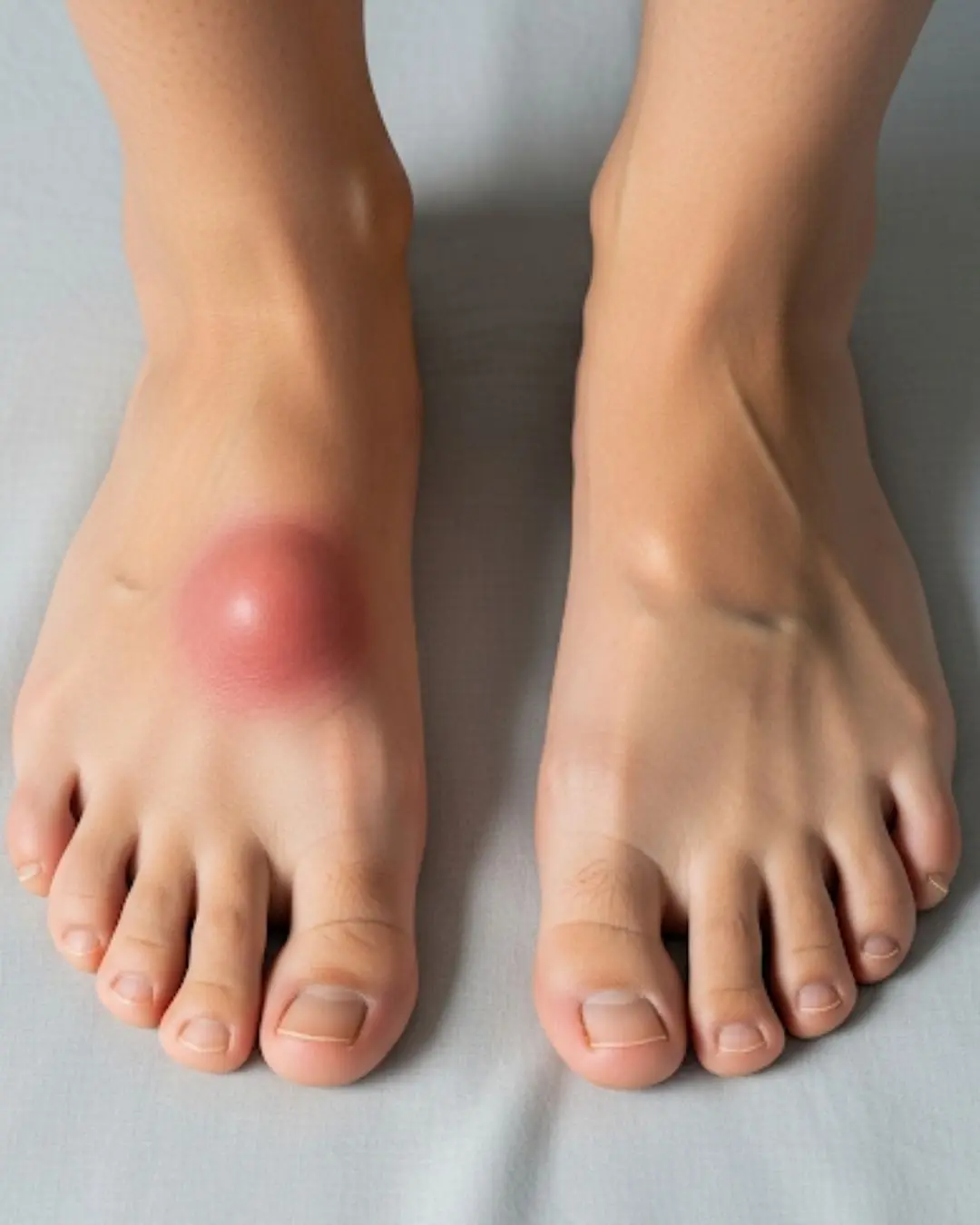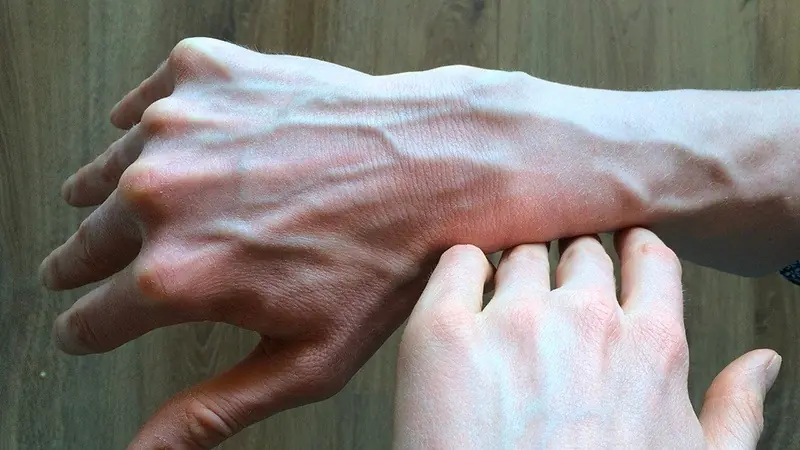
This is what sleeping on the left side does for our brain, stomach & glymphatic health

Side sleeping is a popular position for many, but what some may not realize is that it comes with several health benefits. Different sleeping positions can impact the body in various ways, both positively and negatively. While comfort is the priority for most, those experiencing issues like back pain, jaw discomfort, poor digestion, or more may want to reconsider their sleeping posture. In particular, sleeping on the left side can offer several advantages.
The Benefits of Sleeping on Your Left Side
Relieve Back Pain – Sleeping on your stomach can put pressure on the spine, leading to discomfort. Side sleeping, on the other hand, helps keep the spine aligned naturally, reducing pressure in the lower back.
Reduce Snoring – When sleeping on the back, the tongue and soft palate can slide backward, partially blocking the airway and increasing snoring, a common problem for people with sleep apnea. Sleeping on the side keeps the tongue forward and helps keep the airway clear.
Improve Digestion – Sleeping on the left side is particularly beneficial for digestion. The stomach is located on the left side of the body, and lying on that side helps gravity assist in the digestion process, alleviating issues like bloating, constipation, and heartburn.
Support Brain Health – Many people are unaware that the brain eliminates waste during sleep. Research shows that side sleeping may aid the brain’s glymphatic system (which removes waste), potentially lowering the risk of neurodegenerative diseases like Alzheimer’s and Parkinson’s. While animal studies suggest this, more human studies are needed to confirm these benefits.
Improve Blood Flow – Pregnant women are often advised to sleep on their left side because it enhances circulation, ensuring optimal blood flow to the placenta.
How to Train Yourself to Sleep on Your Side
Choose the Right Pillow and Mattress
-
Select a pillow that suits your collarbone structure.
-
Make sure the pillow is firm enough to support your neck.
-
Opt for a softer mattress to avoid putting pressure on your shoulders and hips.
Use Pillows as Support
-
Place a pillow between your knees to support your hips and lower back.
-
Hugging a pillow can provide comfort for your upper arm.
-
Invest in a body pillow to help maintain side sleeping.
-
Attach a tennis ball to the back of a shirt to prevent rolling onto your back.
Try Sleeping on the Couch
-
Couches are typically narrow and can naturally encourage side sleeping.
Disadvantages of Sleeping on Your Side
While side sleeping can offer many benefits, it may not be suitable for everyone, especially if your mattress or pillow doesn’t provide the right support. Some potential disadvantages include:
Shoulder and Hip Pain – Sleeping on a mattress that’s too firm can put additional pressure on the shoulders, hips, and knees. Conversely, a mattress that’s too soft may cause spinal misalignment, leading to discomfort.
Facial Pressure – People with sinus congestion or glaucoma may feel uncomfortable pressure on their face when side sleeping, and it may worsen issues like a stiff or tight jaw.
The Pros and Cons of Other Sleeping Positions
Ultimately, comfort should dictate your sleeping position. But it’s still important to consider how your posture can impact your health. You may begin the night on your left side and allow your body to naturally shift positions. Don’t stress if you find it difficult to maintain side sleeping, as other positions also offer benefits.
Sleeping on Your Back
Benefits – This position may help with:
-
Hip and knee pain
-
Arthritis
-
Fibromyalgia
-
Sinus congestion
-
Bursitis
Tips:
-
Place a pillow under your knees to support the lower back and spine.
-
Spread your legs and arms to minimize joint pressure.
-
Use a supportive pillow for your neck and avoid ones that push your chin toward your chest.
-
Elevate your head with extra pillows or a wedge to reduce heartburn, headaches, and sinus buildup.
Sleeping on Your Stomach
Though some may find comfort in stomach sleeping, experts generally advise against it. “If you're sleeping on your stomach and experiencing back pain, there’s likely a reason for it,” says Bill Fish, a certified sleep science coach. The core of your body, being the heaviest part, presses down, putting strain on your spine and causing discomfort.
Tips for Stomach Sleepers:
-
Use a flat pillow or none at all.
-
Avoid tucking your arms under your head or pillow, as this could lead to arm numbness or shoulder pain.
-
Alternate the sides of your head to prevent neck strain.
-
Avoid bending one knee upward as it could worsen back issues.
News in the same category


How to Use Rice Water for Gorgeous Hair and Skin (Detailed Instructions)

Beware: U.S. Salmon May Be Crawling with Japanese Tapeworm, Say Scientists

Colon Cleansing: How to Naturally Flush Your Colon at Home (Science-Based)

3 Morning Symptoms That May Signal the Onset of Canc3r

"8 abnormal signs warning of c3rvical canc3r that women need to recognize early"

If you don’t correct these 5 harmful eating and drinking habits right away, sooner or later your esophagus will also be “ravaged” by cancer cells.

If Your Feet Swell It Is a Clear Sign

Nose Picking What This Taboo Habit Really Reveals About Us

Everyday Habits That Can Cause a This Issue To Your Hands

Why Liver Cancer Is Often Detected Late – Important Warning Signs You Shouldn’t Ignore

If You See Someone with Prominent Green Veins, Make Sure to Tell Them This – It Could Save Their Life

How to Safely Remove Super Glue (502) from Your Skin Without Tearing It

3 Unusual Signs in the Neck That Could Be Symptoms of Cancer – Don’t Ignore Them!

Consciousness Is Not Confined to the Brain, But Is Connected To The Whole Universe, Scientists Say

Study Finds People With ADHD Listen to Music Differently—Here’s How

Can I Get My Metabolism Back After Stopping Lexapro and Prozac?

8 Foods High in Inulin to Eat for Better Gut Health

Proven Health Benefits and Uses of Thyme and Thyme Tea

Proven Health Benefits of Walnuts, How Many to Eat, and More (Science Based)
News Post

Why Your Legs Cramp at Night (And How to Fix It)

How to Use Rice Water for Gorgeous Hair and Skin (Detailed Instructions)

Beware: U.S. Salmon May Be Crawling with Japanese Tapeworm, Say Scientists

The Benefits of Chicken Feet Stewed with Black Beans – As Powerful as Ginseng

There are many cuts of beef, but only these 3 are considered the true “essence” – both chefs and butchers wholeheartedly agree!

Colon Cleansing: How to Naturally Flush Your Colon at Home (Science-Based)

Put this into a lemon and place it in the corner of your house – mosquitoes will stay away for good

3 Morning Symptoms That May Signal the Onset of Canc3r

"8 abnormal signs warning of c3rvical canc3r that women need to recognize early"

If you don’t correct these 5 harmful eating and drinking habits right away, sooner or later your esophagus will also be “ravaged” by cancer cells.

Is Your Air Conditioner Outdoor Unit Making Loud Grinding Noises? Use This Simple Trick to Make It Run Quietly Without Calling a Technician!

Urgent warning issued to travelers as China takes ‘covid measures’ after reporting 7,000 cases of Chikungunya virus

3 Effective Ways to Prevent Snakes from Entering Your Home Everyone Should Know to Protect Their Family

Signs to look out for amid Gordon Ramsay's health warning after undergoing cancer surgery

How to Handle Common Refrigerator Problems and a Surprising Lesson from American Toilet Habits

If Your Feet Swell It Is a Clear Sign

Why Doors in Public Bathrooms Don’t Reach the Floor

Nose Picking What This Taboo Habit Really Reveals About Us

Everyday Habits That Can Cause a This Issue To Your Hands
